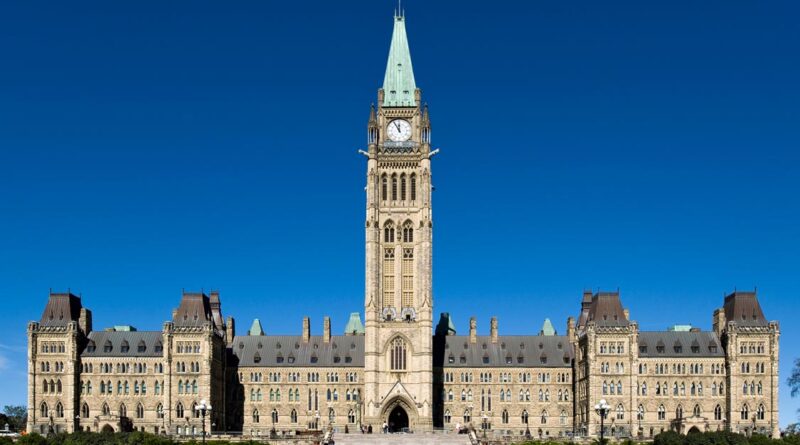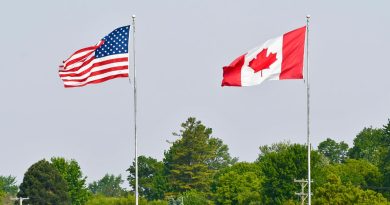What Is Our System Of Government?
Things That Matter, By Dennis Rizzo
Your vote counts If you make it count after the election. If you fail to vote you can’t complain that no one listened to you. If you do vote but don’t expect much, that’s what you’ll get. If you vote, participate in town hall discussions, write to your MP with thoughts and ideas, and ask questions, you just might get a government that is responsive and works for all the people.
Parliamentary democracy practised by most countries in the former British Commonwealth is based on the Westminster tradition of England. Why? Well, it likely has something to do with colonization and empire building but that’s for another column.
The representative democracy practised in the United States is based on a unique three-sided system established in 1789. It was adopted to replace an ineffective and economically disruptive confederated arrangement between the thirteen states.
Canada operates as a confederation in much the same way as the original thirteen down south. As a result, it has retained the inherent intra-member rivalries such an arrangement produces. The tariff wars may prompt modification in inter-provincial trade.
Parliamentary democracies generally do not elect a president. There are some countries around the world which have both a prime minister and a president – one for governing and one for ceremony. Canada does not.
What does it have? What are you voting for when you go out on election day?
Where the United States has the executive, legislative, and judiciary branches, Canada has the House of Commons, the Senate, and the Crown. It also has a supreme court of the land as an additional element. Each of these is supposed to keep track of the other – somewhat of a civic buddy system. In practice, the Canadian Parliament has two branches – executive and legislative. Each handles the activity inherent in their titles.
You vote for your representative to the House of Commons (the House). These are called MPs – Members of Parliament. They are different from your provincial MLAs, MPPs, and MNAs, etc., who govern provinces. In the Westminster system we do not vote directly for the premier or prime minister. There are currently 338 MPs in the national parliament.
In Ontario, federal and provincial candidates campaign in what is referred to as a riding. This is a legislative districtdivided geographically, usually based on population. This might cause confusion over who you are selecting when conflated with premier versus prime minister. In Ontario, Doug Ford is currently the premier whereas Mark Carney is presently the prime minister for all of Canada.
Between elections, each party selects a leader. This person is chosen by voting members of that party. If you join as a conservative party member, for example, you vote for the leader of the Conservative Party.
The candidates in each riding are determined by each party’s leadership and the local party association. At the time of an election call (the writ drop) each local riding association nominates a candidate who is vetted [approved] by the national party.
By voting you are stating your preference for a riding candidate. Voters often decide based on the promises and policies of a party [Bloc Quebec, Liberal, Conservative, Green, New Democrat] under whose banner the candidate is running. Sometimes voters exercise a degree of independence and decide based on the qualifications of a candidate regardless of party affiliation. The candidate collecting the most votes in a riding fills the seat until the next election.
According to House of Commons procedure, “the Prime Minister and the Cabinet are able to exercise authority only with the consent and approval (confidence) of a majority of the Members of the House of Commons.” If the party having the greater number of MPs does not have a 51% majority of MPs elected to completely ensure its approval, it must earn its approval to govern by gathering support from members of other parties and independents. In that case it forms what is referred to as a minority government.
So, the party that has the most MPs determines who will be Prime Minister. The prime minister is, in fact, simply the first among equals in the House. So in addition to running the government, the PM also represents their local riding. They are not a stand-alone executive; they manage the executive segment of national government through their selected cabinet members. The cabinet is a committee of the King’s Privy Council for Canada.
To some extent, the process in the USA lends itself to more popular control over the executive – cabinet members must be approved by the entire House and Senate. In Canada’s system, the members of Privy Council are selected/approved by the Governor General (the Crown) on advice of the Prime Minister. There is rarely an objection.
Then, the party with the next most number of seats in Parliament becomes what is referred to as the Official Opposition. If you can work yourself up to watch Question Period on the CPAC cable channel, you’ll see the official opposition leader and members raising issue with the policies of the party in power. As I said in another column, it’s not viewing for the faint of heart, or those eating dinner. It can actually turn one off to voting, which leads us back around to our initial discussion.
Why does your vote matter?
In short, because the activity inside the governing body of Canada is driven by the individuals we select to be there. Despite what may seem like invisibility on the part of the MPs, they each react differently to pressure from you – the voter. Some are keenly responsive to constituents (you). Some are indifferent to constituents. Most need some prompting and involvement by constituents to fully represent the interests of their district.
In addition, you must remember that an MP’s designed purpose, once elected, is to represent all of the people in their district, not just those you who voted them into office. So they are pulled and pushed from many directions and, hopefully, make their policy decisions based on the greater good.
If you have an MP that works for the greater good of the entire riding, they should be able to explain their decisions to the voters openly and clearly. The MP who is making decisions based on fact, and for the overall public good, should have no difficulty telling you about the basis for those decisions and why they arrived at their position. If your MP cannot clearly, and simply explain their position on an issue, ask why. You may get a staffer response, but you should get a clear response without party-driven donkey dust.
(Images Supplied) Main: Canadian Parliament (Photo by Saffron Blaze)

Dennis Rizzo is a columnist writing on big issues affecting ordinary Orillians. He is an ex-pat Yank from New Jersey. Orillia, Ontario. Canada is his adopted home, but he has brought along a degree of puckishness and hubris. Dennis spent more than 30 years working in the field of disabilities, with some side trips to marketing and management. He presented and keynoted for many conferences and served on a President’s advisory committee. Dennis is the author of several journal articles and booklets in the field of disabilities and work and five non-fiction books, including “A Brief History of Orillia – Ontario’s Sunshine City.” He recently republished a novel set in 1776 and a mystery set in 1860. He also enjoys sitting in on music sessions around town when he can.




